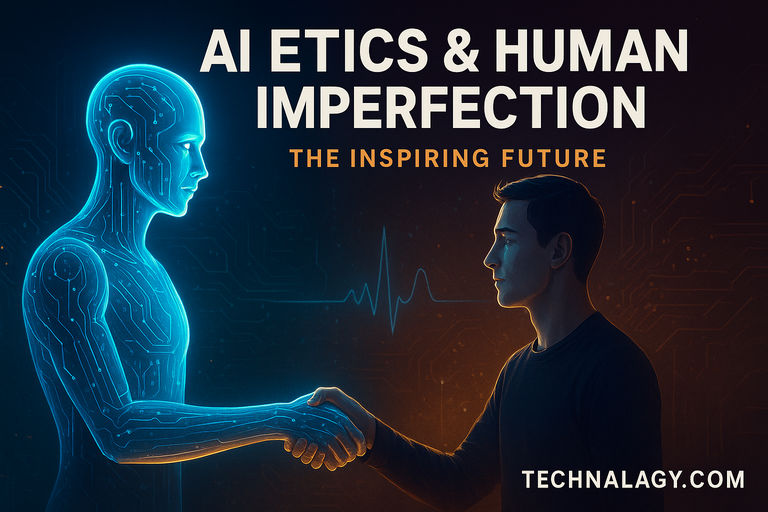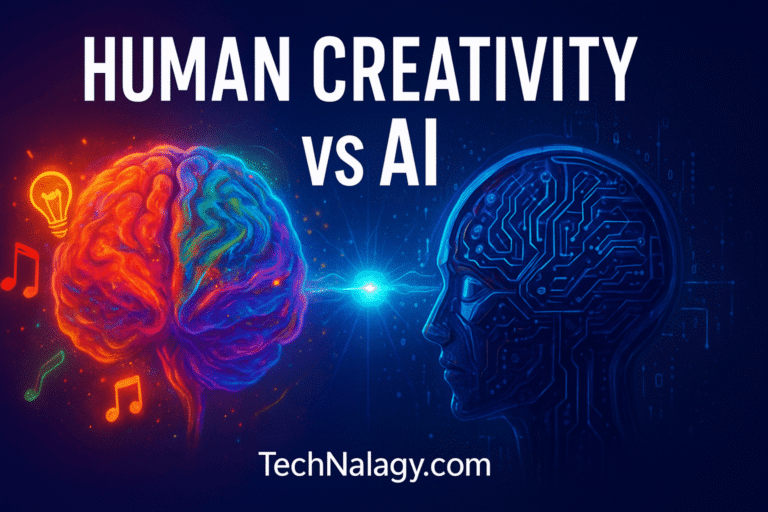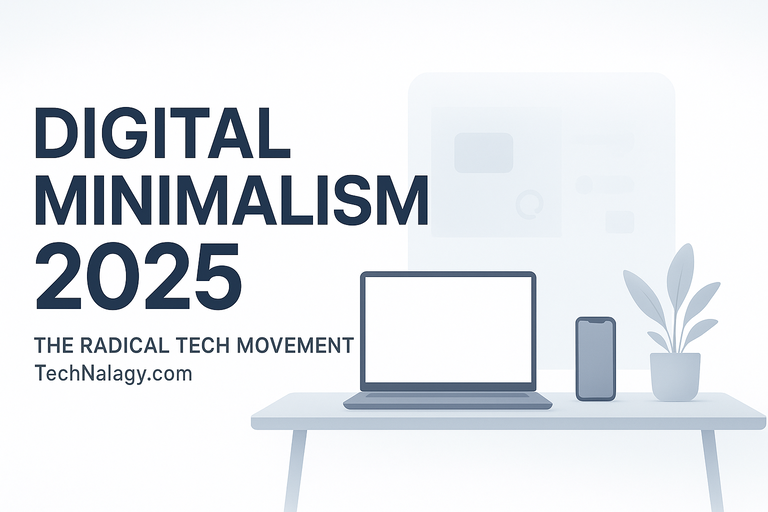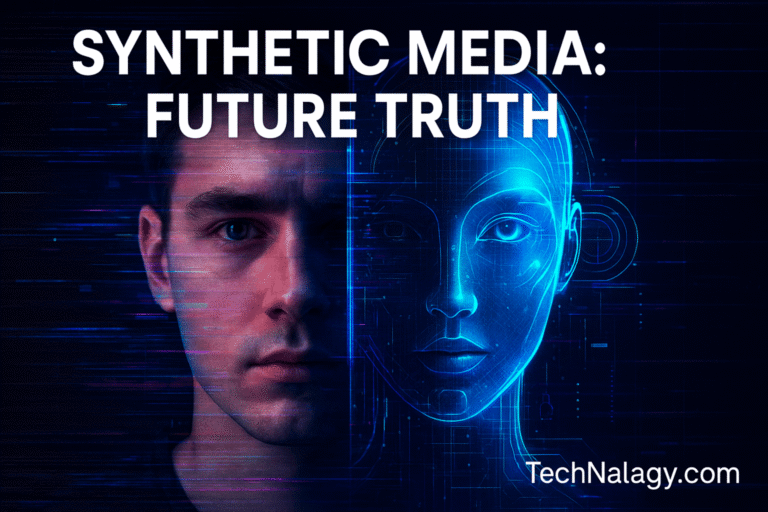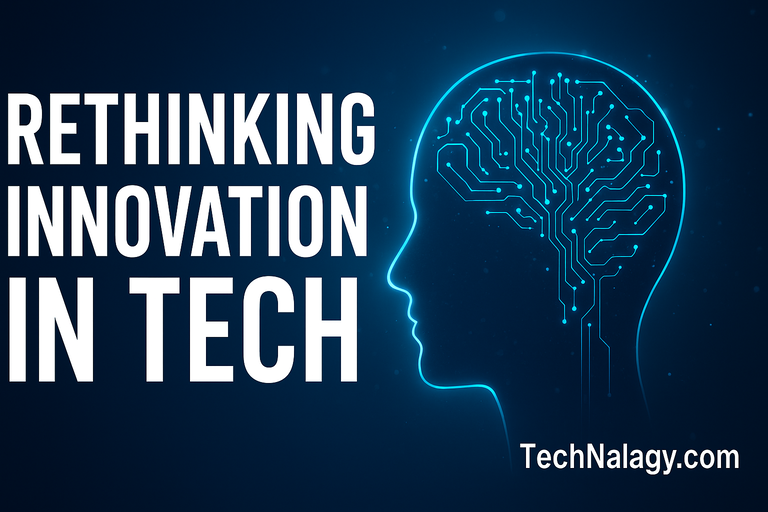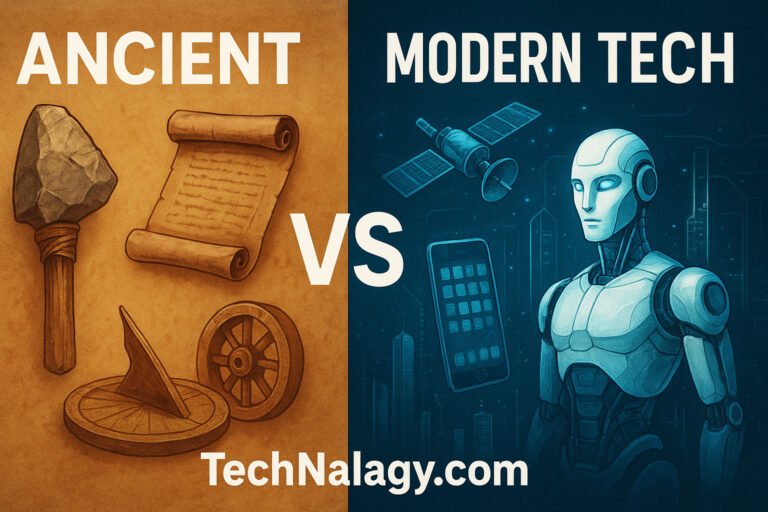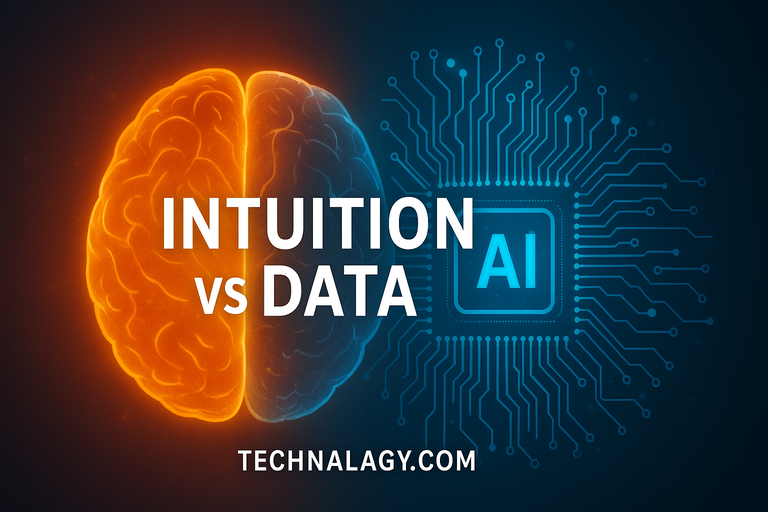Why the Future of AI Ethics Depends on Human Imperfection
Artificial Intelligence has long been portrayed as the ultimate solution to human flaws — an infallible system designed to outthink, outperform, and outlast us. Yet, as AI grows more sophisticated, a paradox emerges: the pursuit of perfect intelligence might be the most dangerous path of all.
In 2025 and beyond, the central question in the AI world is no longer “Can machines think?” but rather “Should they think like us — flaws and all?”
This article explores why the future of AI ethics and human imperfection is deeply intertwined — and why imperfection may be the key to building truly ethical, trustworthy machines.
Table of Contents
The Myth of Perfect AI
AI has always carried the illusion of objectivity. We imagine algorithms as neutral, rational entities free from bias or error — everything humans are not. In theory, this “purity” of logic should make AI more ethical. In reality, it often does the opposite.
Behind every dataset lies a reflection of human history — messy, biased, and incomplete. Algorithms trained on biased data can amplify injustice rather than eliminate it. From facial recognition systems that misidentify darker skin tones to recruitment algorithms that quietly favor men, “perfect” AI often exposes the imperfection of its creators.
When we strip AI of its connection to human flaws, we don’t remove bias — we just make it invisible. Ethical AI doesn’t begin with perfection; it begins with self-awareness.
As explored in AI in Everyday Life, technology is already shaping our routines, choices, and communication. This makes understanding AI’s ethical foundation more urgent than ever.
Understanding Human Imperfection in AI Ethics
To understand why imperfection is essential, we must redefine what it means. Human imperfection isn’t just about mistakes — it’s about emotion, empathy, intuition, and the capacity to question. These traits are not computational errors; they are moral features.
Ethical AI requires more than rules and logic — it needs a moral compass informed by lived experience. Humans interpret fairness through culture, compassion, and context — qualities algorithms lack.
According to MIT Technology Review, building truly ethical AI requires embedding human values directly into systems, ensuring that machines don’t just act correctly but also ethically.
Perfection, in this sense, is sterile. Imperfection, by contrast, carries wisdom born of trial and error — something every ethical framework depends upon.
Human Imperfection as a Strength in Ethical AI Design
When we think of “flaws,” we often think of limitations. But in the realm of AI ethics and human imperfection, flaws can be design principles.
1. Bias as a Mirror:
Human bias can serve as a diagnostic tool. When we notice bias in AI systems, it reflects our collective moral blind spots. By studying and correcting them, we evolve ethically alongside the technology.
2. Emotion as Calibration:
Empathy, compassion, and even guilt are crucial regulators of moral behavior. They help humans balance cold logic with human warmth — something AI cannot replicate.
3. Intuition as Insight:
Experienced professionals — doctors, judges, teachers — often rely on intuition to interpret complex human situations. AI, which operates on data patterns, lacks this nuance.
As discussed in Human Creativity vs AI, emotion and imperfection often drive innovation and authenticity — elements that make both art and ethics human.
The Danger of “Puritan” AI — When Machines Aim to Erase Human Flaws
What happens when we build AI that aspires to perfection? We risk creating systems that are logical but not moral — efficient but not humane.
Consider self-driving cars forced to make split-second moral choices: whom to save in a potential crash. A “purely logical” AI might optimize outcomes based on probability, not compassion. Similarly, predictive policing algorithms can perpetuate systemic bias under the guise of mathematical fairness.
The pursuit of flawlessness creates what ethicists call ethical coldness — decision-making devoid of empathy. In trying to erase human imperfection, we risk erasing humanity itself.
Designing AI That Embraces Human Imperfection
The next generation of ethical AI won’t reject imperfection — it will rely on it.
Researchers and developers are exploring models that combine logical precision with human reasoning. These hybrid systems, known as neuro-symbolic AI, aim to fuse emotional intelligence with algorithmic structure.
The concept is explored in depth in The Rise of Neuro-Symbolic AI 2025, where human-like reasoning becomes essential to creating more balanced and interpretable AI systems.
Designing AI that embraces imperfection means:
- Training with diversity: Using varied, imperfect, and real-world data to prevent monocultural bias.
- Building feedback loops: Allowing human oversight and correction to continuously refine AI decisions.
- Accepting ambiguity: Teaching AI to tolerate uncertainty rather than forcing binary outcomes.
This approach doesn’t weaken AI ethics — it humanizes it.
Case Studies: When Imperfection Saved the System
- Healthcare Diagnostics:
AI systems sometimes misclassify rare medical cases, while doctors’ intuition catches anomalies the algorithm misses. These “imperfections” save lives. - Content Moderation:
When social media AI flags satire or art as harmful, human reviewers restore balance by understanding tone and culture. - Autonomous Vehicles:
Public input on ethical driving dilemmas (the “trolley problem”) helps developers model AI ethics based on collective imperfection — not abstract logic.
Each scenario proves one truth: imperfection adds context, empathy, and adaptability that machines still lack.
The Philosophical View — Imperfection as Moral Intelligence
Ethics is not a formula — it’s a dialogue. Philosophers from Aristotle to Kant understood that morality requires judgment, not calculation. Humans err, reflect, and improve — and that iterative imperfection is the essence of moral growth.
AI, however, cannot experience guilt or moral conflict. It can simulate ethics, but not feel it. True ethical intelligence may therefore require the very qualities we once sought to eliminate: emotion, doubt, and subjectivity.
AI ethics and human imperfection converge here — in the realization that being ethical is not about always being right, but about having the capacity to question what “right” means.
The Road Ahead: Building Ethically Imperfect AI Systems
By 2030, we may see the rise of emotionally aware AI, systems designed not to replace human reasoning but to enhance it. These future systems will integrate:
- Affective computing: Recognizing emotional cues in human behavior.
- Ethical reinforcement learning: Training AI to prioritize fairness and compassion.
- Collaborative imperfection: Human-AI teams where both parties compensate for the other’s limits.
The challenge isn’t teaching machines to be perfect — it’s teaching them to understand imperfection without judgment.
Conclusion: Perfection Is Not the Goal — Humanity Is
Ethical intelligence requires humility — something machines cannot possess, but humans can. The more we chase flawless AI, the more we risk losing the very essence of ethics itself.
The future of AI ethics and human imperfection depends on recognizing that our flaws are not failures but lessons. They remind us that morality, creativity, and compassion thrive not despite imperfection, but because of it.
In the end, the goal of AI should not be to surpass humanity — but to understand it, imperfections and all.
FAQs on AI Ethics and Human Imperfection
1. What does AI ethics mean in simple terms?
AI ethics refers to the moral principles guiding how artificial intelligence is designed, used, and regulated. It focuses on ensuring fairness, transparency, and accountability in technology, especially as AI becomes part of daily life.
2. How is human imperfection connected to AI ethics?
Human imperfection plays a crucial role in AI ethics because it reminds us that moral reasoning, empathy, and context come from human experience — not from data alone. Ethical AI must reflect these imperfections to make balanced and humane decisions.
3. Can AI ever be truly ethical without human input?
No. AI lacks moral awareness and emotions, which are central to ethical judgment. Without human guidance, even the most advanced systems can make harmful or biased decisions. That’s why AI ethics and human imperfection must work together.
4. Why is it dangerous to aim for “perfect” AI systems?
Aiming for perfection can strip AI of empathy and flexibility. Perfect systems might follow logic without compassion, leading to “ethical coldness.” Embracing imperfection helps AI adapt to complex human realities and cultural nuances.
5. How can developers design AI that respects human imperfection?
Developers can create ethical AI by training on diverse data, including real-world feedback, and allowing for human oversight. This ensures that AI evolves with society rather than above it — maintaining both accuracy and empathy.
6. What are some examples of AI ethics in everyday technology?
Examples include AI in healthcare diagnostics, self-driving cars, content moderation tools, and voice assistants. Each relies on ethical frameworks to prevent harm, bias, or misinformation while supporting human well-being.
7. What is the future of AI ethics and human imperfection?
The future lies in hybrid systems — blending machine precision with human intuition. This partnership will create technology that’s not just intelligent but also emotionally aware, responsible, and human-centered.
✅ Pro Tip: Learn how AI is already shaping our daily routines in AI in Everyday Life and how emerging models like The Rise of Neuro-Symbolic AI 2025 are redefining ethical intelligence.

Kamran Khatri is the founder of technalagy.com, where he shares insights on AI, future tech, gadgets, smart homes, and the latest tech news. Passionate about making innovation simple and accessible, he writes guides, reviews, and opinions that help readers stay ahead in the digital world.

